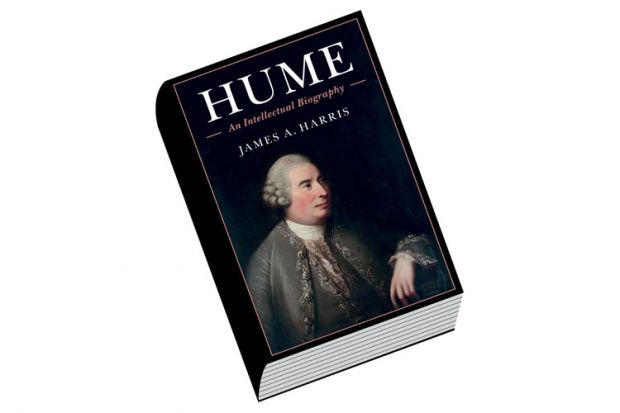The Commercial Philosopher
The Enlightenment is often miscast as the ‘Age of Reason.’ In truth, it dethroned rational philosophy in favor of sociology and psychology.

Hume: An Intellectual Biography
By James A. Harris
Cambridge, 621 pages, $55
Jan. 10, 2016 4:32 p.m. ET
By Jeffrey Collins
In the summer of 1776, the celebrated diarist James Boswell visited the Edinburgh home of David Hume, where the philosopher lay dying. Hume, atypically thin and “ghastly” in pallor, was nevertheless “placid.” Interrogated by Boswell, he affirmed his view that the afterlife was an “unreasonable fancy.” With “death before his eyes,” Boswell reported, Hume blithely predicted his own annihilation. “I maintained my faith,” wrote Boswell, but “left him with impressions which disturbed me for some time.”
This scene often serves as a miniature representation of Hume’s career. Boswell’s watery piety crashes against Enlightenment reason. Superstition flinches before knowledge. The sang-froid of Hume’s godlessness amazed contemporaries, and modern atheists have treasured the tale.
James A. Harris’s “Hume: An Intellectual Biography” punctures most of this mythology. Though an atheist, Hume was nowhere near as dogmatic as his current admirers. He was certainly not a rationalist. His reputation for philosophical intrepidity, furthermore, has been overblown.
David Hume was born in 1711 in Scotland, the third child of a gentrified lawyer. He would spend much of his life at the family’s country home, Ninewells. As a younger son, Hume required an occupation. He flirted with law and business and enjoyed some minor government jobbery. But he always wished, Mr. Harris writes, “to live the life of a man of letters.” This aspiration was just becoming possible as an expanding commercial print market replaced a reliance on aristocratic patronage.
http://www.wsj.com/articles/the-commercial-philosopher-1452461565
